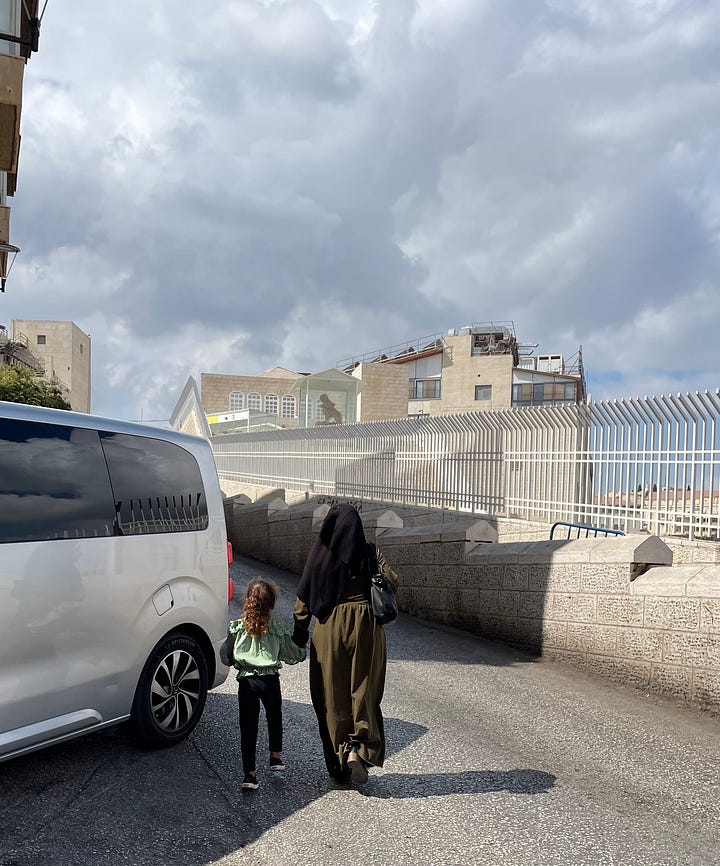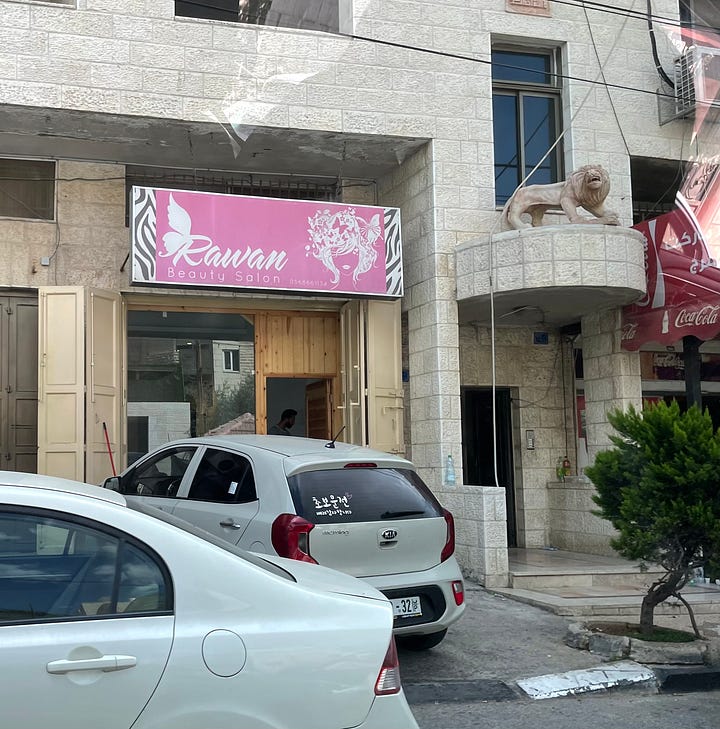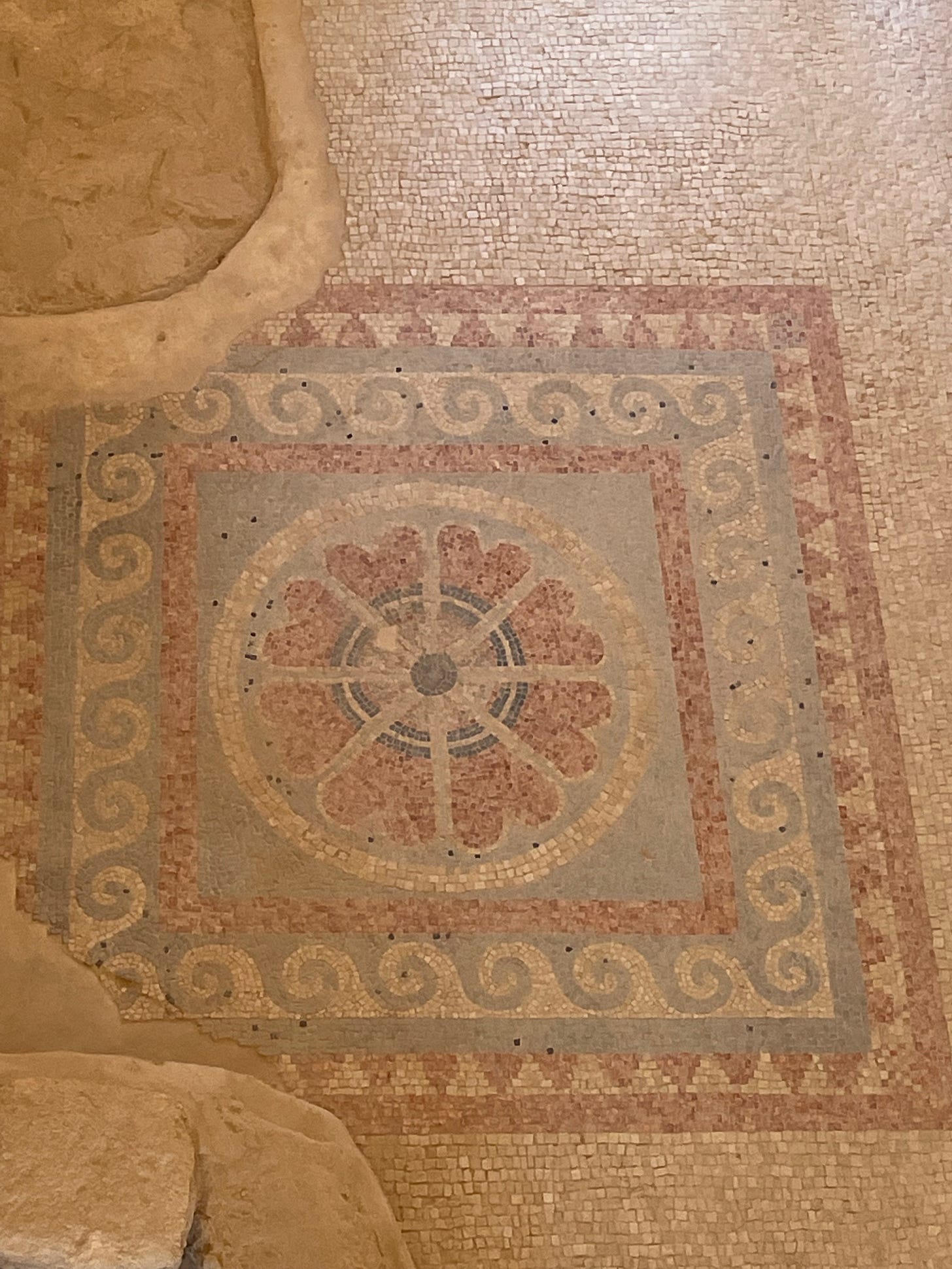LETTERS ABOUT BEIRUT
While reading this Arabic translation threw light on a volatile region in the Middle East, it made me think about my own relationship with my native country.

I’ve found that one way to get some insight into life in other lands is by reading fiction from those lands. A step further than that, I think, is the act of reading local fiction in translation from those lands. That’s one of the reasons I’ve loved this project so much.
Reading fiction written in the regional languages is similar to the experience of eating at a celebrated (but unpublicized) hole in the wall in a new country. The clientele is often local. There’s no artifice and no handholding. We learn by watching local connoisseurs order and then grope our way through the same.
Reading Hanan al-Shaykh’s Beirut Blues (translated by Catherin Cobham) this week felt a lot like a first experience savoring food in a new country where an English menu was unavailable. The book’s epistolary approach meant that I did not know the history of the relationship of the sender to the addressee until I was well into the chapter. In the earlier chapters, I had to read most of the letter in order to understand the relationship between the writer and the addressee. This lack of comprehension played out in other ways, too.
I did not know enough about Lebanon before deciding to read this book. I’d heard about Beirut being called the "Paris of the Middle East" for decades but I didn’t know much else. About a hundred pages into the book I realized that I needed a Lebanon 101 in order to understand the novel.
The geography was not lost on me, of course. Last month we were driving in a northeasterly direction on the highway towards Haifa from Tel Aviv. Like both those Israeli cities, Beirut, too, is on the waters of the Mediterranean, barely 80 miles from Haifa as the crow flies. Like the ancient port of Jaffa, Beirut (known then by the name Berytus) is over 5000 years old and it was one of Phoenicia's most prominent city states. Lebanon’s own history has been tied at the hip to that of its immediate neighbors, Israel and Syria.
What I needed to know in order to make sense of Beirut Blues was some of the history following the dissolution of the Ottoman empire. By the end of the 19th century, Lebanon was home to more Christians than Moslems. In the years after the second world war, the region ricocheted with the tension around Palestine’s imminent breakup and the creation of Israel. The arrival of Palestinian refugees altered the demography of the nation. Civil unrest was inevitable and by 1975, the Christian side of the city of Beirut and the Moslem section of the city were at loggerheads with each other. If Beirut was widely considered the most thoroughly Westernized city in the Arab Middle East before 1975, following the war, over 15 years of civil war ravaged most parts of the city and altered its character.
Asmahan (Asma), the narrator in Beirut Blues, laments the ways in which her beloved Beirut has been pummeled by war. “The sidewalk was riddled with holes, big and small. but it was still a Beirut sidewalk. People still walk in the streets of Beirut; their eyes register the wrecked buildings, the broken glass, the burned trees. The toy shop has become a roast chicken take-out.” As she writes letters to her best friend, her lovers, her grandmother, the city of Beirut, the war, and the land itself, we see her trying to make sense of how human beings often get entangled in a protracted war of ideology and sectarianism. There comes a point in the progression of a war when it’s not even clear what the strife is all about.
In a letter “To My Land” that was powerful and moving, I could recognize my own feelings for the land of my origin. I grasped the pathos of having to abandon one’s land by force or by choice. I understood why Beirut Blues had to end in an unexpected way. In this emotional plea to the land, Asma’s passages are filled with longing.
“I haven’t visited you since you were occupied, since your trees were cut down, and they changed your features. How hard I tried to make my grandfather leave you! But he preferred to expose himself to kidnapping, even to death, in order to stay close to you. How can someone be so attached to the inanimate? But I suppose you’re alive: you bear fruit, you grow thirsty and cold; you’re changeable and not always compliant, for with your great open spaces or a small handful of your soil you’ve modified and shaped humanity; you’ve produced my family and been privy to the minutest secrets of their souls.”
Yet the book’s epistolary felt contrived sometimes. I couldn’t be invested enough in the characters. In contrast, while reading Orhan Pamuk’s The Museum of Innocence, the first two pages sucked me in. I stayed with this writer, bloated as his writing felt sometimes.
Reading Beirut Blues took me back to my drive through a part West Bank when we decided to see Bethlehem. When Asma is driven to her village the day their neighborhood is bombed, she notices the beauty and the damage around her even in her far away village.
We used to visit the village from time to time in the early years of the war. As the country grew more rocky and mountainous, the vines would appear, and the orchards full of gladioli like yellow and white lollipops; the village seemed untouched by the fighting, and the sound of rockets and mortars there was unimaginable, but some buildings had obviously been hit.
What catches Asma’s eye in her village is the sign for a hairdresser: “Samira, coiffeuse”. With just one observation, Al-Shaykh took me back to that day in Palestine last month. The dilapidation all around me was evident. Yet wherever I turned there were beauty salons.


I was astonished by the preoccupation with beauty in this desolate section of the world but I felt that it was evidence that human beings stayed positive and believed that there would be something to look forward to in the future. The sight of a fruit vendor or a beauty salon, in my view, was reassuring, that life would always go on, no matter how bad the circumstances. It’s this idea of staying rooted—right in the middle of fracturing and chaos—that is at the heart of Beirut Blues.
I found Asma’s letter to her grandmother to be the highlight of the book. The grandfather is an incorrigible philanderer. Knowing this, her grandmother, Sulayma, leaves the village to lead a separate life in Beirut. In some of the liveliest lines of this tale, Al-Shaykh gives voice to the colorful, domineering Suleyma—brilliant, quotable lines that read as if Trevor Noah were trapped inside the old Sulayma.
“Nature, my precious, doesn’t sit there doing nothing. It presides over us, observing, plotting, sniffing out information, and it knows I didn’t have any more seeds after your mother and the child I lost. But it knows your grandfather has oceans of them. Every time he sees a beautiful woman they get busy and desire her and say if only we could get to know her seeds so that we could have fun, instead of being crammed into this dark body among the flesh and fat and blood and sinews. But the problem is that in your grandfather’s body there are also eyes, a mouth, nostrils, and more still in his head. Every time he goes too far with a woman these all send him warnings: “What are you doing? Why? Does anyone else in the world have eyes like Sulayma’s, speak like her, smell like her?” His mind functions separately, detached from him when he gets hot. But it intrudes all the same.”
The out-and-out confidence of this woman in her own merit when pitted against her husband’s dalliances and the extent of her love for her granddaughter makes Beirut Blues also a paean to female power. The men in the book are emotional and impetuous, and often prone to violence. The women, on the other hand, keep it together when bombs fall and even when their land is occupied by the militia.
By the time the book rolls to an end, Asma knows exactly what she wants. In the thick of the war, her own personal journey is as tumultuous as that of her country’s, yet she doesn’t lose faith in her land. She is hotheaded and judgmental and is infused with her grandfather’s promiscuity and her grandmother’s sense of self. As she writes in her letter to her lover Jawad, she’s driven (and often held back) “by her sense of superiority that her family owns almost the whole village.” She realizes she looks down on the men who fall in love with her hence she ends up sleeping alone. Her angst over her feelings for her land keep impinging on her feelings for the men who walk in and walk out of her life.
Or is it that living away from here you carry a beautiful picture of your homeland in your mind, while I see only a disfigured image of it? Does it annoy me that you see a peaceful plain planted with crops, which you water, prune and harvest, while mine has become an arid waste?
Hanan al-Shaykh is a fine writer. I learned a lot about Beirut but after the first two chapters, I did the ancillary reading in order to make sense of Beirut Blues. Al-Shaykh’s first letter, for instance, doesn’t manage to set the stage. Why should a reader have to do the homework of learning about Lebanon’s history over the ages?
From that perspective, the choice of this epistolary form did not work for me although mid-way through Al-Shaykh’s work, I was certainly more and more intrigued by the story. As one critique pointed, it was like peeling the layers of an onion. It’s entirely possible that on a second read, I might find the structure itself more appealing.
A work must be self-explanatory with just enough exposition. Having said that, just how must a writer effortlessly meld reportage, personal feelings and storytelling in order to pull the reader by the nose? This continues to define my own struggles in writing.





I enjoyed this very much. We visited Lebanon some years back during a short period of uneasy peace. Everywhere there was rubble and new construction; reminders of the brutality this little country has endured but also of its spirit of survival and indomitable zest for life. The people were incredibly warm and generous. We drove all over the country and passed several Hezbollah checkpoints. We saw many tent cities housing refugees from Syria. We drove south to Mleeta, near the border with Israel where Nasrallah's former hideout is now a war museum to the Hezbollah resistance. I have worked closely with an oud player from Lebanon and learned so much about his country from him. So I will definitely check out Beirut Blues!